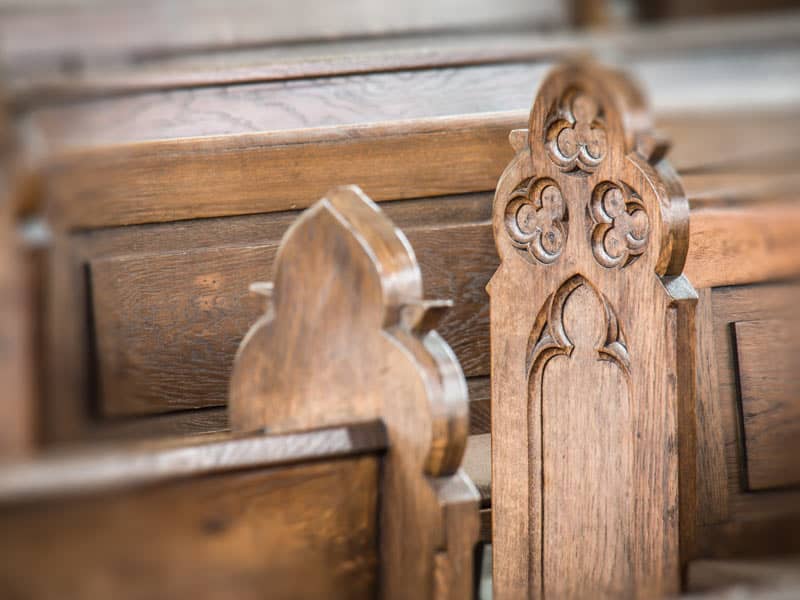LOS ANGELES -- Uneasy American Muslim leaders say vice presidential nominee Sen. Joseph Lieberman, D-Conn., must move quickly to reassure them he will be fair on the Mideast or risk losing millions of votes in crucial states to Republican George W. Bush.
The ambivalence toward Lieberman is evident even among strongly Democratic Muslims, and among Arab-American delegates of other faiths, who are attending the Democratic National Convention in record numbers.
Muslim leaders are urging Lieberman, the first Jewish candidate named to a major party's national ticket, to meet with them to discuss a wide range of issues, but said they have received no response yet.
"He needs to engage with the Muslim community in a public setting," said Salam Al-Marayati, executive director of the Muslim Public Affairs Council.
"If the signal is he has no interest in such engagement, then, yes, I expect Muslims to shift their attention to the Bush-Cheney ticket," Al-Marayati said. "If there is no definitive response within a week of the convention, then I'm afraid time will be running out and people will be making up their mind."
Ibrahim Hooper, spokesman of the Council on American-Islamic Relations, said Al Gore's choice of Lieberman to be his running mate has stirred deep apprehensions among Muslims, who believe the United States has always tilted in favor of Israel and that a Jewish vice president would make changes in that policy unlikely.
But Lieberman's selection also stirs hope that if Jews are able to crash important cultural barriers and run for high office, Muslims eventually can follow.
On domestic policy, other Muslims fear Lieberman may be too conservative on domestic and social issues of concern to Muslims. Leaders say Lieberman must speak out on issues such as due process under anti-terrorist laws they feel victimize them, as well as federal spending on housing and health care for immigrants.
"One thing we ask of Lieberman and Gore is that they reach out to the Muslim community to discuss these issues," Hooper said. "It's really up to him. The initiative is in his hands."
Republicans see an opening. GOP National Chairman James Nicholson, in Los Angeles as a critical observer, said his party is already "reaching out to Muslim voters and meeting with their leaders." If they are 8 million strong, Nicholson said, they are at least as numerous as Jewish voters. "The Bush ticket has a good chance to carry that vote" in the swing states of Michigan, Ohio, Illinois and California where there are significant numbers of Muslims, Nicholson said.
In a series of interviews at the Democratic convention, many Muslim delegates said they will vote to nominate Lieberman for vice president Wednesday -- some grudgingly -- but they acknowledge that he has "work to do" to win the votes of the Muslim community.
"I will vote for Mr. Lieberman, not with all my heart, but I will vote for him, yes," said Jumana Judeh of Detroit, who was born "in the holy city of Jerusalem."
One of 55 Arab-American delegates here, not all of them Muslim, Judeh said she is troubled because Lieberman has been a firm advocate of moving the U.S. Embassy in Israel from Tel Aviv to Jerusalem, a step that would demonstrate U.S. support for Israeli sovereignty over Jerusalem when the Palestinians also claim rights to the city.
"I'm not in love with Mr. Lieberman because of his past voting record," she said. "I'm a Palestinian and the embassy issue is very important to me."
Delegate Chafic Hatoum, 66, a retired insurance executive and Lebanese-born Muslim from Sylvania, Ohio, said a Jewish vice president could be good for Muslims. "I've heard that because he is a Jewish American means there is potential for some doors to be opened that wouldn't have been opened otherwise. That's certainly possible," said Hatoum.
Delegate Ismael Ahmed, 52, director of an Arab community center in Dearborn, Mich., said he was caught by surprise when Gore chose Lieberman.
"He has a mixed record on the Mideast," Ahmed said. "I will vote for Lieberman because I'm a Democrat. He is not where I would like to see him on Jerusalem, but he's not been an enemy to the peace process either."
One of Lieberman's most outspoken admirers among the Arab-American delegates is James Zogby, president of the Washington-based Arab American Institute, who said, "He helped us when we needed somebody to help us."
Arab-American Democrats initially were not welcomed into the Clinton-Gore campaign in 1992, Zogby said; "They were rebuffed." He said a prominent member of the pro-Israel lobby, whom he declined to name, who was active in the Clinton campaign bluntly told him: `We're not going to let you in. Go join the Republicans.'
"I went to Joe Lieberman," Zogby said. "I told him they were trying to keep us out, that they were saying they don't want Arabs in this campaign. Lieberman said, `That's outrageous.' He picked up a telephone and called George Stephanopoulos (then a senior Clinton aide) and said, `I want the Arab-Americans in the campaign.' The next day we were invited to the campaign headquarters in Little Rock and we were greeted there with open arms. It was Lieberman who made it happen. He said what was happening to us was wrong and it was not the kind of politics he would support."

